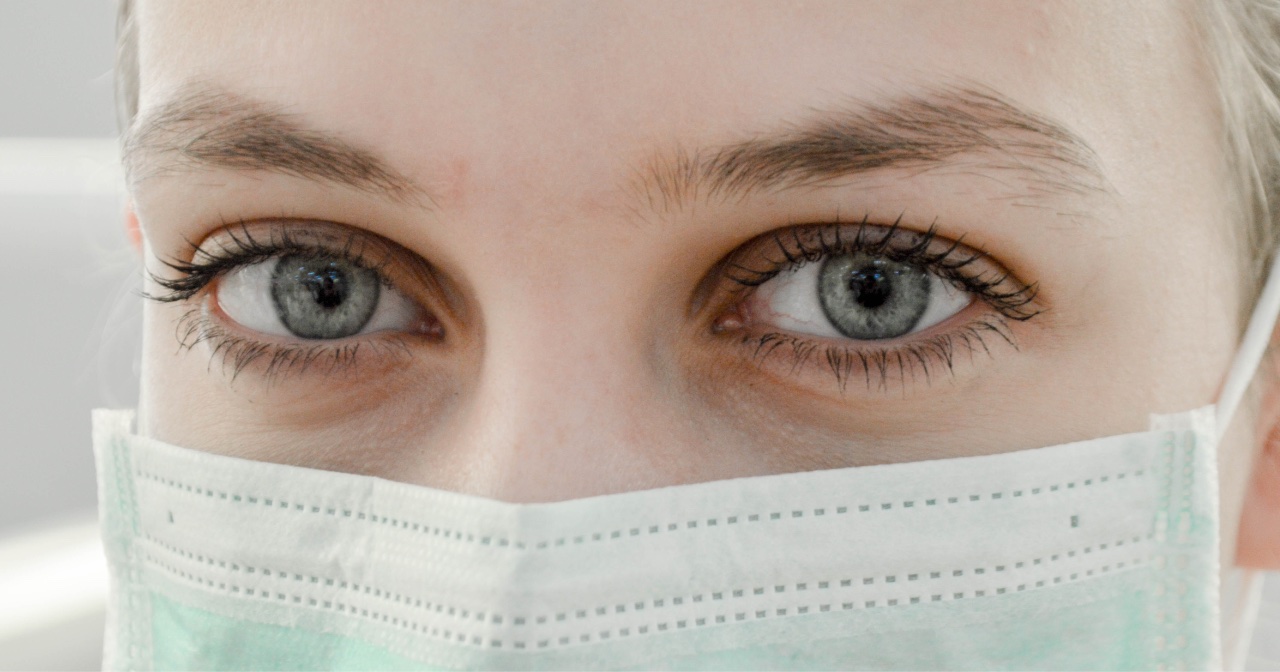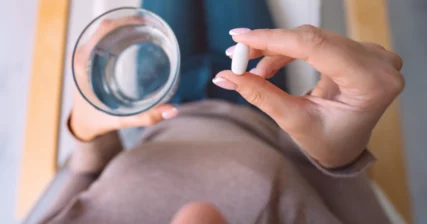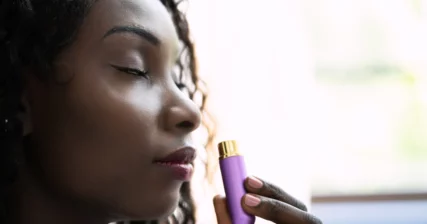Listen on: Apple Podcasts | Spotify
Could wearing masks do more harm than good? Is it possible they could negatively impact physical health, mental wellbeing, or even our society’s civility?
I realize that opening this blog post with those questions will cause some people to question me. Who am I to question public health experts and politicians?
We’re not supposed to question the “experts,” are we? They know what they’re doing, right?
After all, they:
- Came up with the Dietary Guidelines for Americans, which promote a diet known to exacerbate diabetes and obesity
- Decided vaccine makers cannot be held liable for damages caused by vaccines
- Approved Phen-Fen to combat the obesity epidemic which caused heart valve problems and other major health issues
- Approved the use of Olestra in foods which caused micronutrient depletion and anal leakage
- Remain silent about the impact food and supplements could have on reducing the risk of the coronavirus
The list goes on, but I think you get the point.
I’m sure by questioning whether we should “mask up” or not, some people will say I’m selfish.
“You’re supposed to wear a mask to protect others.” “You don’t do it for yourself.” “To not wear a mask is an act of selfishness.” Or to quote Biden recently, “It’s not about your rights. It’s about your responsibility.”
Those are some of the lines we’ve been conditioned to believe in the past few months. Before virtue signaling the unmasked, consider this: Many people who choose not to wear a face covering are the most selfless, caring, health-promoting people I know.
I’m also among the unmasked. I don’t avoid wearing one out of defiance or disregard for others.
I’m not convinced the long-term risks of wearing masks outweigh the minor benefit they might provide.
In my opinion, the following issues need to be discussed and vetted by unbiased healthcare practitioners and psychologists and require close observation in those who choose to mask up. Without confidence about these issues, I choose not to wear a mask, and wouldn’t encourage friends or family members to wear one either.
Could mask-wearing increase social disconnection?
For more than six months, “experts” have told us to stay at least six feet apart. No hugs, handshakes, or other physical touch. Physical touch helps us bond with others. It helps us feel good, too.
Now, we’re not only supposed to be six feet apart, but we’re also supposed to cover our faces. In fact, one of the Wisconsin state agencies expects employees to wear masks even when alone, on Zoom calls.
Facial gestures play an essential role in human communication.
We use 43 muscles to create 21 distinct facial gestures. Those gestures often tell more of the truth in communication than people’s words do.
Thanks to our mirror neurons, when we see others’ facial gestures, we mirror their gestures to help us feel what they feel. That’s the foundation for empathy.
The MNS (Mirror Neuron System) is considered to be related not only with motor imitation and reading intention of other agents, but also with concepts in social interaction, such as emotion, empathy, and ToM (Theory of Mind). Hence, it is speculated that the cause of psychiatric disorders such as ASD may be strongly associated with dysfunctions of the MNS.
Hyeonjin Jeon and Seung-Hwan Lee.
To believe that covering people’s faces won’t affect our interactions with others is ridiculous.
If others can’t see our facial gestures, and we can’t see theirs, we miss out on a large part of the emotional aspect of our interaction. On top of that, we shouldn’t hug, shake hands or rub shoulders?
During a time of significant social tension across the country, we need clear and compassionate communication. Covering our faces compromises communication and reduces empathy. Couldn’t it lead to even more social stress than we already see today?
Couldn’t masks reinforce danger and deceit?
You wear a mask to protect yourself from danger, or to hide your identity. Even if it’s Halloween, you wear a mask to make yourself someone you’re not. There’s no other reason to wear one.
So it stands to reason that when you’re surrounded by people wearing masks, you’re reinforced with feelings of fear, anxiety, or apprehension.
Fear of a virus that kills a tiny percentage of the population under 80 years old. Or, fear of a person you don’t know who might have the virus and might breathe on you as you walk by on the sidewalk.
Add that to the fear about the massive uptick in crime across the country (and as we know, many criminals wear masks), or the fear of getting canceled for saying the wrong thing or supporting the wrong cause.
And most of what I’ve written about so far is from the point of view of an adult.
What about kids? We don’t know what impact it’ll have on them, seeing others wearing masks or needing to wear masks themselves. Anyone who suggests “kids will be fine” speaks from a baseless opinion. We just don’t know what this could do to children and young adults.
How might masks affect smiling and its positive effect on our mental wellbeing?
Since the beginning of March:
- we’ve become immersed in a race war
- cancel culture threatens free speech
- the economy is a giant question mark
- violent crime is spreading like a coronavirus
- kids are being told they must wear masks while back at school while teachers act with less maturity than their students
- the politicians, media, and “health experts” keep us from returning to normal until a vaccine comes out even though there are numerous cures already available
Are you depressed yet?
Reading those words might make you feel even more angry or depressed. Writing them made me feel that way.
But it doesn’t have to.
Try this: Reread those bullet points, but this time, do it with a smile on your face. Seriously. Try it.
Not as bad, huh? A smile literally has a psychiatric effect on your body. Even if you don’t feel happy before you smile, you’ll feel happier after smiling.
What causes us to smile most often? Seeing other people smile or seeing other people and saying hello to them with a smile.
But if their faces are covered, won’t we be less likely to smile at them?
Even worse, could we possibly project our emotions on others since we can’t see how they’re feeling? What if we’re angry? Will we project anger on them? What if we’re sad, frustrated, or depressed?
A smile sometimes warms the heart of another person (as long as they can see your face). Yet, the smile does more for you than it does for them. But if you don’t see others’ faces, you’re less likely to smile at them, and they’re less likely to smile at you. Both of you miss out on the benefits of smiling.
You don’t even need to feel happy to benefit from the act of smiling.
In our research we found that when you forcefully practise smiling, it stimulates the amygdala — the emotional centre of the brain — which releases neurotransmitters to encourage an emotionally positive state.
Fernando Marmolejo-Ramos, et al.
If you’re thinking, “I can’t even force myself to smile right now,” no problem. I have a trick for you. It’s called a “covert smile,” and it’s how researchers do some of their smile-related research. Instead of forcing yourself to smile, hold a pencil in your teeth. It engages the same muscles as smiling does.
You could also get Botox and numb your frowning muscles, but why fill your face with an expensive toxin when you can smile for free?
The point is, regardless of what people are doing around you, you’ll be less likely to smile if you see fewer people smiling, which could have catastrophic effects on our culture.
Pre-COVID, the average adult smiled 20 times per day. Children smiled about 400 times per day. Imagine the negative impact on our mental health if we cut down on those smiles.
Could wearing face coverings grow bacteria and mold?
After wearing a face covering for a little while, the warm, damp environment isn’t that different from your shirt in your armpit or underwear after a workout. In fact, it could be worse. You breathe through the bacteria-filled mask. You don’t breathe through your stinky shirt or underwear.
Some people do wash their masks or purify them under UV light, but that’s the minority. More often, the same mask will be reused, stored in a dirty purse or glove box, and rarely, if ever cleaned.
Could the masks themselves lead to unexpected infections? Could some people have trouble breathing through them? What other possible impacts could they have on our health?
While all of the questions I’ve asked are important, this seems like the most obvious place to start.
What kind of health problems could the mask create while it’s worn to slow the spread of a virus that isn’t very deadly anyway?
Summary
C.R. Adler Wright discovered a cutting-edge substance in the 1870s. It was supposed to be five times more potent than morphine, and supposedly less addictive. The public got excited. The FDA approved its use.
Bayer capitalized by adding the substance to aspirin and promoting it for use in adults and kids. They encouraged its use for conditions as insignificant as colds and coughs. Some bottles of the new aspirin even featured kids on the labels.
All this, even though there was no long-term safety data or research studies.
Bayer sold it for 15 years before enough doctors realized how bad the substance was. Eleven years after that, the FDA banned it.
Though using the substance at the beginning seemed like a good idea, countless people were hurt before public health “experts” realized the use of heroin was a horrible idea.
To jump on a mask-wearing bandwagon before considering the possible side effects carries significant risks, especially for our younger generations. For those who genuinely care about the public good, it’s worth asking questions and carefully considering answers before pushing masks across an entire population.
Hopefully someone involved in public health policy (and who isn’t bought or biased) will start considering the possibility of collateral damage from population-wide masking.

Feel Better Fast. Guaranteed.
Energy+, EDGE, and MentaBiotics make up the Happy Juice supplement stack, with ingredients clinically proven to:
- decrease anxiousness scores by 55%
- decrease irritability scores by 60%
- decrease fatigue by 64%
- decrease anger 54%
- decrease tension by 45%
- decrease confusion by 43%
- decrease overall distress by 49%
- increase good bacteria by 70%
- decrease negative mood by 105%
- increase positive mood by 211%



